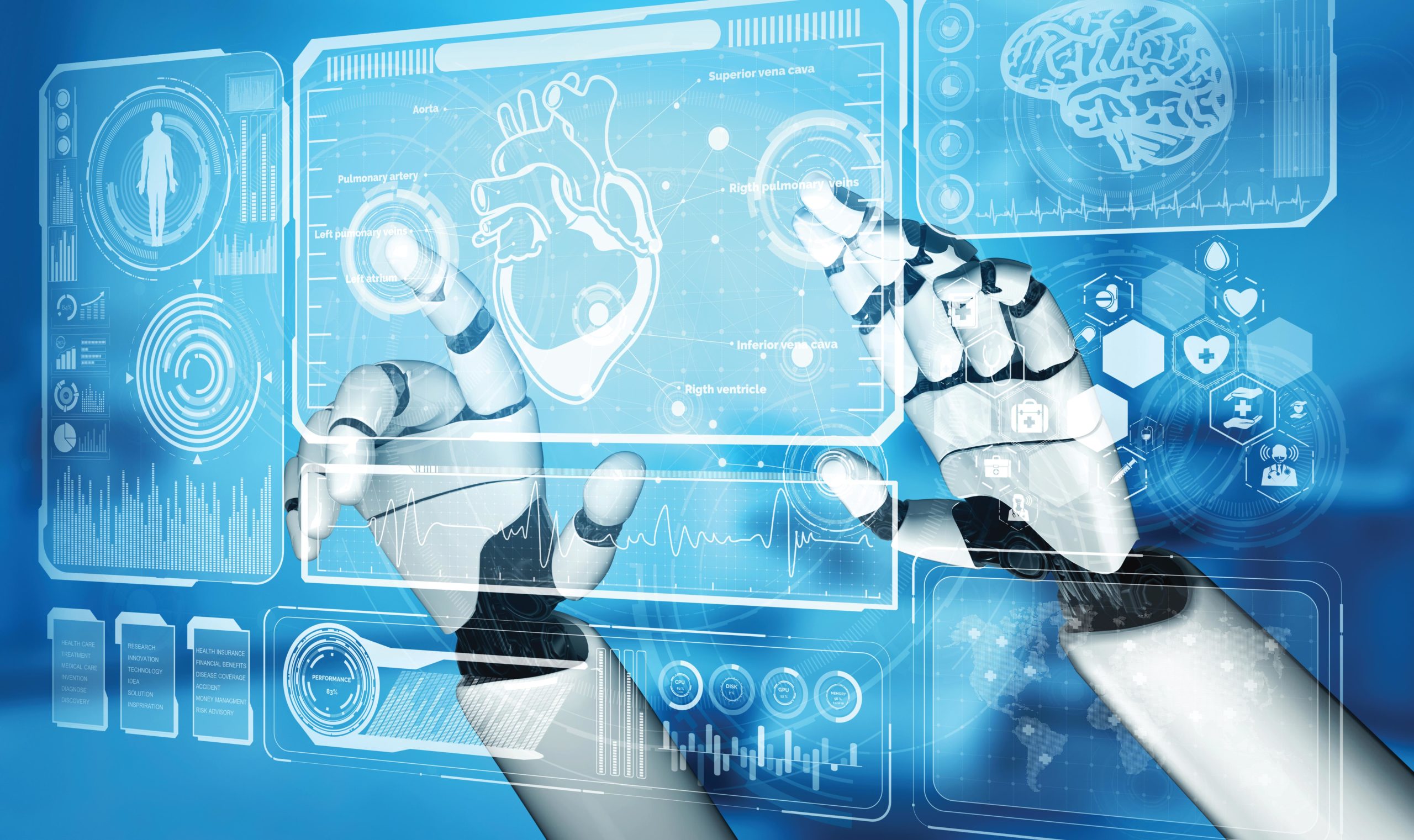Artificial Intelligence (AI) is revolutionising the world. We have self-driving cars, algorithms determining future market patterns, and computers diagnosing disease. We believe that AI is supporting huge developments in healthcare.
AI is defined as the ability of a computer system to perform tasks commonly associated with intelligent beings. It comes as no surprise that AI has had an impact on radiology; a crucial profession in healthcare that uses imagining technology to diagnose and treat disease. Many in the field fear that AI will snatch away their profession.
Machine learning is a fundamental component of AI. It is defined as the use of algorithms for computer systems to extrapolate information based on their observations and previous experiences. “Spotify” is a great example that uses machine learning when recommending music. It uses previously viewed items in order to suggest similar media which the user may like. Large volumes of data are required for machine learning to be effective, as computer systems must be trained to perform a task.
In radiology, AI has several potential uses ranging from radiotherapy to medical imaging. The AI typically does a specific task, like detecting the causes and effects of a disease or recreating human anatomy. Computer-aided diagnosis helps mark areas in radiographs which may contain pathologies such as tuberculosis and vertebral compression fractures. AI can even identify the type and grade of certain diseases. Approximately 40 million radiological reports contain interpretive errors, predominantly by radiologists. AI may markedly improve patient safety. In radiotherapy, it can also reduce the time to plan treatments, by contouring the anatomical structures, helping patients receive faster treatments.
Although AI has several advantages, it is far from perfect. We believe that human interaction is still key. Healthcare professionals do their work with dedication and empathy. AI cannot provide the same sense of comfort and reassurance. A possible setback could be that patients might not provide a comprehensive medical history to an AI agent they do not trust. Most patients give accurate and detailed histories when they are comfortable with healthcare professionals.
A radiographer is responsible for optimising the radiation dose and image quality specifically to a patient. It would be interesting to see if and how AI would manage to do so, as well as the ethical consequences of AI making such life-dependent decisions.
With so many advancements on top of speed and precision, AI-driven automation may eventually have the power to fully interpret a radiological image, prescribe medication, or even improve image quality and reduce scan times. However, such tasks are still performed in conjunction with healthcare professionals as opposed to replacing them. Therefore, although certain tasks will be taken over by AI, the role of healthcare professionals will not be made redundant.
AI already has several uses in radiology, all carried out in conjunction with healthcare professionals. Future enhancements in this field will allow for new techniques and better patient care. Until then, we look forward to seeing what further developments AI has in store for us.





Comments are closed for this article!